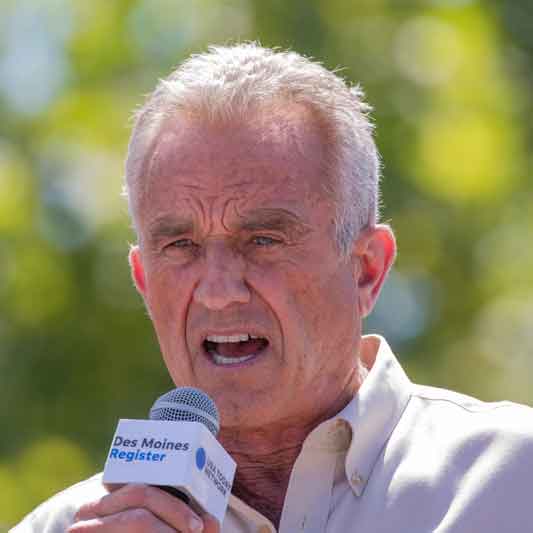On Monday, August 4, Health and Human Services Secretary Robert F. Kennedy Jr. announced that President Donald Trump regularly contacts him to discuss efforts to improve Americans’ health. Kennedy disclosed these frequent conversations during a press event where he highlighted new restrictions on food stamp expenditures.
Flanked by state governors and Cabinet officials, Kennedy explained that Trump calls him three or four times each week for updates on health initiatives. He said that Trump repeatedly asks, “Why aren’t people healthier yet?”
According to Kennedy, the president consistently pushes him to move health policies forward more quickly. Kennedy noted that Trump called him the night before the press conference, a continuation of his habit of personally checking on the progress of health reforms.
The main focus of the briefing was a new policy that prohibits the purchase of soda and candy with food stamps. This measure is part of Trump’s “Make America Healthy Again” platform, an extension of his 2016 “Make America Great Again” campaign. Kennedy emphasized that these nutrition-centered policies are a true reflection of Trump’s dedication to health issues.
Widely recognized for his unconventional views on vaccines and public health, Kennedy assured reporters that Trump is fully committed to fulfilling his health promises. Kennedy described the president’s frequent phone calls as evidence of Trump’s direct interest in the success of these programs.
The “Make America Healthy Again” effort includes multiple high-profile actions aimed at changing Americans’ eating habits. One such initiative encourages Coca-Cola to sell sodas made with cane sugar rather than high fructose corn syrup (HFCS) in the United States.
Coca-Cola recently confirmed in its earnings report that it will introduce a cane sugar–sweetened cola in the U.S. later this year. This new product will be offered alongside the traditional HFCS-based version.
Nutritionists point out that cane sugar and HFCS are very similar in composition and health effects when consumed in similar amounts.
A report from PBS NewsHour notes that, although HFCS has slightly more fructose than cane sugar, there’s no conclusive proof that HFCS is more dangerous. Both are categorized as “added sugars” and linked to health problems like obesity, diabetes, and heart disease when overconsumed.
According to a Parents.com article, dietitians agree that “neither sweetener is healthier than the other… each equally increases the risk of type 2 diabetes, high blood pressure, and heart disease…”
During his time as secretary, Kennedy has overseen significant changes within federal health agencies, including funding cuts and staff layoffs. Most notably, he recently removed all 17 members of the Advisory Committee on Immunization Practices, replacing them with individuals who share his skepticism of vaccines.
These staffing changes represent a major shift in the leadership of federal health policy. Traditionally, the committee has set vaccine guidelines and policies nationwide. Kennedy’s decision to install like-minded members marks a notable departure from long-established public health approaches.
The limitation on food stamp usage discussed on Monday fits into the administration’s wider health plan. Kennedy and other officials believe that restricting the purchase of sugary foods with federal aid will help improve nutrition among low-income Americans. This policy is a concrete step within the broader “Make America Healthy Again” agenda.
Kennedy’s remarks about Trump’s frequent calls highlight the president’s direct and proactive involvement during his second term. This pattern of ongoing communication suggests that Trump is keeping a close eye on major policy projects, especially those central to his campaign’s health promises.
By openly discussing his regular updates with Trump, Kennedy also showcases the administration’s strategy of emphasizing the president’s active role in policymaking. Spotlighting Trump’s involvement in health initiatives underscores how important these efforts are within the administration’s priorities.

